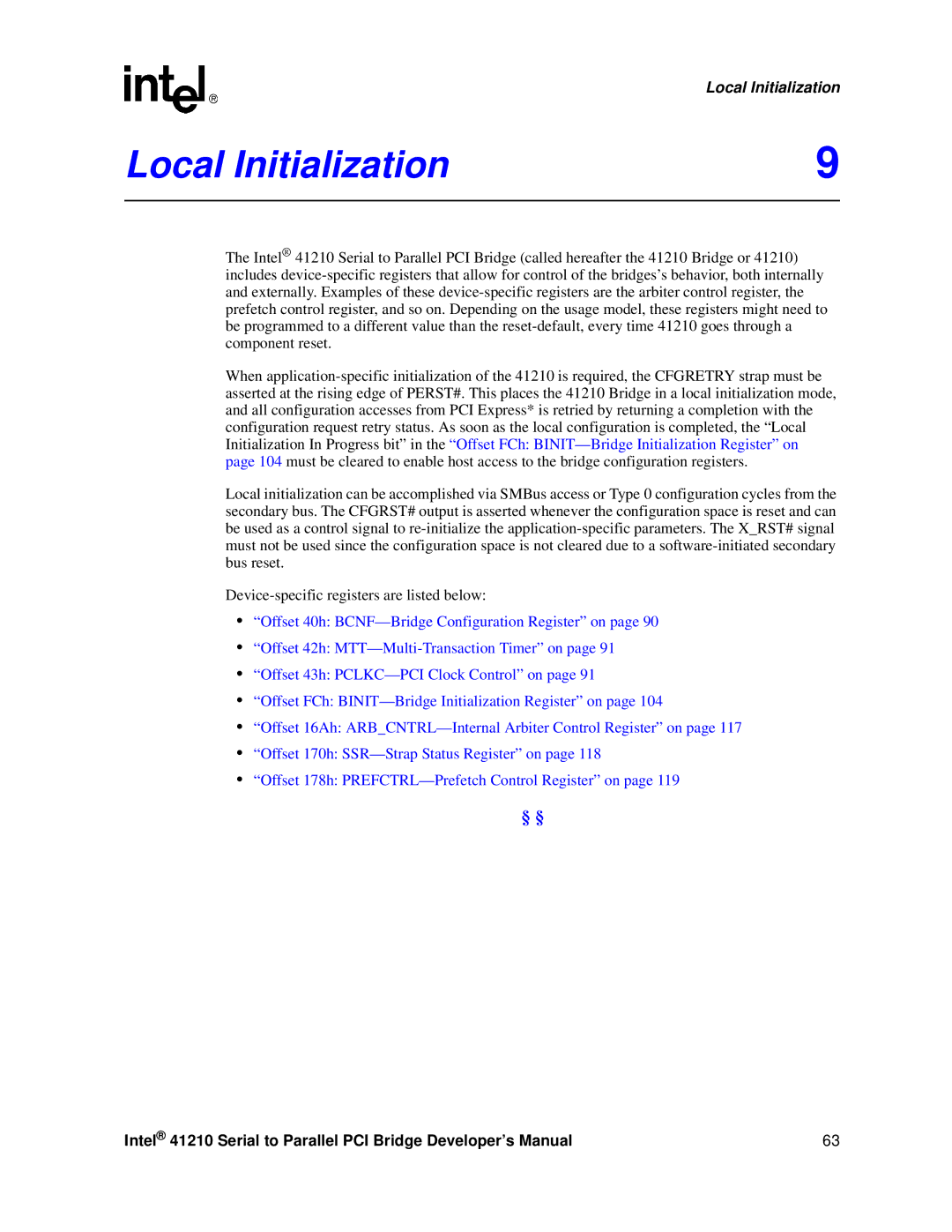| Local Initialization |
Local Initialization | 9 |
|
|
The Intel® 41210 Serial to Parallel PCI Bridge (called hereafter the 41210 Bridge or 41210) includes
When
Local initialization can be accomplished via SMBus access or Type 0 configuration cycles from the secondary bus. The CFGRST# output is asserted whenever the configuration space is reset and can be used as a control signal to
•“Offset 40h:
•“Offset 42h:
•“Offset 43h:
•“Offset FCh:
•“Offset 16Ah:
•“Offset 170h:
•“Offset 178h:
§§
Intel® 41210 Serial to Parallel PCI Bridge Developer’s Manual | 63 |
